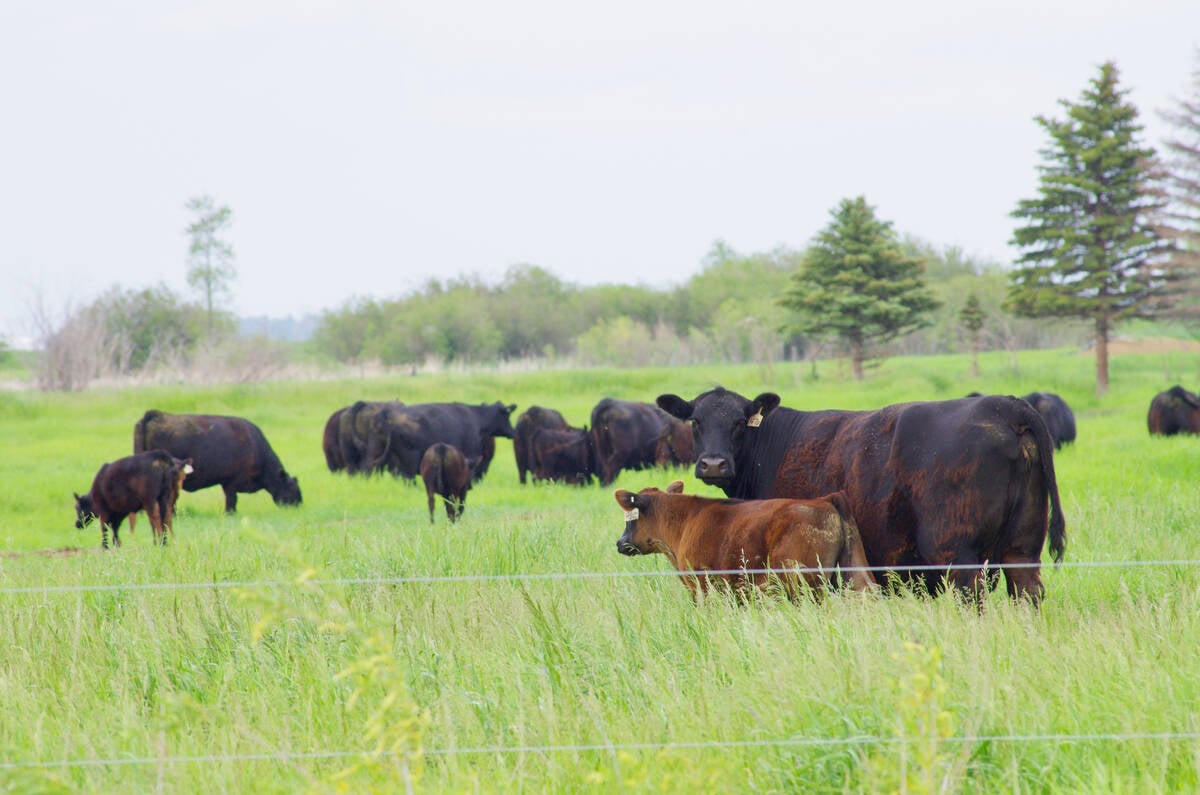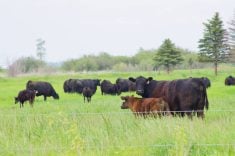Depleted pastures and water supplies have resulted in more early-weaned calves showing up in auction rings this fall.
Smaller, younger calves may suffer higher stress levels than a larger, more robust animal, says Al Schaefer of Agriculture Canada’s research centre in Lacombe, Alta. They may lose weight or sicken more easily.
“They are more susceptible to stress because they have not been exposed to novel events,” he said.
“It’s all new and confusing for them.”
A new social structure triggers stress because the calves are mixed with new pen mates. They have been separated from their mothers sooner and must face new handlers, new transportation and new food.
Read Also

Tick research from the University of Manitoba focuses on insects and testing
Manitoba researchers are looking into the effects of tick and fly disease in cattle.
They are more likely to sicken if there is disease in the air. They also get cold faster.
Stress causes a degradation of muscle sugar and an electrolyte imbalance where salts like sodium, potassium and chloride are thrown out of balance. It takes a tremendous amount of energy for the animal to restore this balance. They can become dehydrated or even hypoglycemic.
“Good cattlemen can bring them through,” Schaefer said. “It’s very intensive and they have to be watched more.”
Milk was an important part of their diets, providing plenty of protein for normal muscle development and healthy immune systems.
These youngsters now need a palatable diet such as a good silage that offers lots of protein and roughage to get their rumens working.
Some backgrounders and feedlots delay processing smaller, newly weaned animals. Rather than administering vaccines and brands right off the truck, they give the calves a day or two to adjust.

















